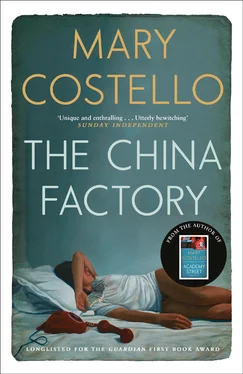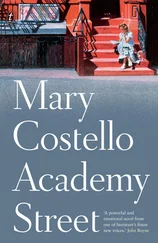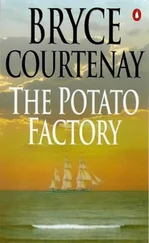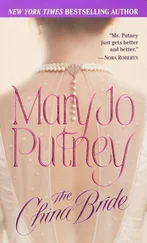— They have to be castrated, her brother says, so they won’t grow into rams.
She is running down the road to the Well Field, Captain running beside her. She stands outside, looking through the rungs of the gate. They are all lying down over by the ditch, the lambs pressed against their mothers’ bodies. She is thinking of their underneaths, open and sore, against the ground. As she watches a lamb rises slowly. The mother rises too and the lamb lowers his head under her, for milk. He pauses and stands there. Then his front legs fold at the knees and he is down again. The mother kneels too and the lamb lets out a thin feeble bleat. She has never heard such a sound.
She finds her mother at the clothesline at the back of the house. The pine trees are leaning over them, making everything darker. As soon as she starts telling her mother, the tears come.
— They have to do it, her mother says. It’s the way things are done. She is taking clothes off the line, shirts, pants, towels, and folding them into the laundry basket.
— They weren’t dosing them at all this morning, she sobs. You said they were dosing.
Her mother says nothing. She takes the clothes pegs off her father’s socks.
— Don’t be thinking about it, she says then. Put it out of your mind.
— They shouldn’t have cut them like that.
Her mother moves along the line, drags a sheet off roughly, folds it from the corners.
— They’re not able to stand up, she says.
— They don’t feel anything, they’re only animals. Her mother is frowning. She kicks the laundry basket to move it along.
— They’re bleeding, she cries. Below in the field now, they’re bleeding.
— God Almighty, will you ever stop! Will you? Will you ever just leave me alone?
The sun is setting. The little birds are sleeping in the trees. She stands at the gable end of the house, her head tilted, listening. Now and then she hears a single bleat in the distance. Soon it will be dark and everything will be silent. They will lie huddled against their mothers, all night long. She goes inside. They are all there, in the kitchen. The nine o’clock news is on. There’s a big search for a little girl who has gone missing on a bog. There are men out looking for her, beating down the heather with sticks.
She is afraid her heart is turning. And that her mother will know this, and then her mother’s heart will turn too. She thinks there is no one in the whole world as lonely as her mother.
Outside my room the wind whistles. It blows down behind our row of houses, past all the bedroom windows and when I try to imagine the other bedrooms and the other husbands and wives inside, I hear my own husband moving about downstairs. He will have finished reading the paper by now and broken up the chunks of coal in the grate. Then he will carry the tray into the kitchen, carefully, with the newspaper folded under his arm. He will wash the mugs and leave them to drain; he will flip up the blind so that the kitchen will be bright in the morning. Finally, he will flick off the socket switches and pick up his bundle of keys. Occasionally, just, he pauses and makes himself a pot of tea to have at the kitchen table, the house silent around him. I know the way he sits, his long legs off to the side, the paper propped against the teapot, or staring into the corner near the back door, pensive. He drinks his tea in large mouthfuls and gives the mug a discreet little lick, a flick of the tongue, to prevent a drip. When I hear his chair scrape the tiles I switch off my lamp and turn over. Don is predictable and safe. Tonight he is making himself that last pot of tea.
There are nights when I want to go down and shadow him and stand behind his chair and touch his shoulder. My pale arms would encircle his neck and I would lean down so that our faces touch. Some nights between waking and sleeping I imagine that I do this but I stand and watch him from the kitchen door and I am aware only of the cold tiles under my bare feet. There is something severe and imperious in Don’s bearing that makes me resist. He has a straight back and square shoulders and black black hair. His skin is smooth and clear, without blemish, as if he has many layers of perfect epidermii. Beside him, with my pale skin and fair hair, I am like an insignificant underground animal, looking out at him through weak eyes.
Lucy, my sister, is staying with us for a week. She is sleeping in the next room and when she tosses I hear the headboard knock against the wall. I get up and stand at the window. The light from the kitchen illuminates the back garden and the gravel path down to the shed. When I am away from this house I have to let my mind spill over into this room before I can sleep. I have to reconstruct it in the strange darkness of another room before I can surrender. Its window bears on the old fir trees looming tall and dark beyond the back wall. There is the house and these trees and a patch of sky above and these are my borders. They pen me in and I like this. I cannot bear large vistas, long perspectives, lengthy hopes. When we first came here Don wanted us to take the front room; it is west-facing and sunny and looks onto the street. He likes to hear the sounds of the neighbourhood; he likes to know there are lives going on around us. Some nights he sleeps out there. This evening he told me I was intolerant.
Tonight I long to be alone. I would walk around the carpeted rooms upstairs, straightening curtains, folding clothes, arranging things. I would lie on the bed and inhale Don’s scent on the pillow and this contact, this proximity to him, would be enough to make me nervous and excitable, too hopeful. Sometimes when Don and Robin are out and I am alone in the house I am prone to elation, swept up in some vague contentment at the near memory of them.
I let myself linger in their afterglow, and then something — a knock on the door, a news item on the TV, the gas boiler firing up outside — will shatter it all. Lately I have become concerned for our future. It is not the fact of growing old, but of growing different. Don gets impatient if I say these things and I see his face change and I know he is thinking, For God’s sake, woman, pull yourself together.
I go into the bathroom and the light stings my eyes. I splash water on my face. He will hear my movements now. I rub on cream and massage the skin around my eyes and cheek bones. My eyes are blue, like Lucy’s. There are four girls in my family and we all have blue eyes. I go out on the landing and lean over the banisters and check the line of light under the kitchen door. I pause outside Lucy’s door. I imagine her under the bedclothes, the sheet draped over her shoulders, her hair spilling onto the pillow. Lucy is a musician; she plays the cello in an orchestra and this evening she played a Romanian folk dance in our living room. Robin was in her jammies, ready for bed and afterwards she picked up Lucy’s bow. Lucy let her turn it over carefully and explained about horsehair and rosin and how string instruments make music and she showed her how to pluck a string. Then she whisked her up into her arms and nuzzled her and breathed in my daughter’s apple-scented hair.
‘Have you thought about music lessons for her?’ she asked me a moment later. ‘She could learn piano, or violin. She’s old enough, you know.’ Before I could reply she brought her face close to Robin’s. ‘Would you like that, Sweetheart — would you like to play some real mu-sic?’ Robin giggled and clung to Lucy like a little monkey. They sat on the sofa across from me. A bluebottle came from nowhere and buzzed above my head.
‘I don’t know,’ I said. ‘She’s already got so much going on. And she’s only six.’ I watched the bluebottle zigzag drunkenly towards the uplighter and for a second I was charged with worry. Every day insects fly into that lighted corner and land on the halogen bulb and extinguish themselves in a breath.
Читать дальше












